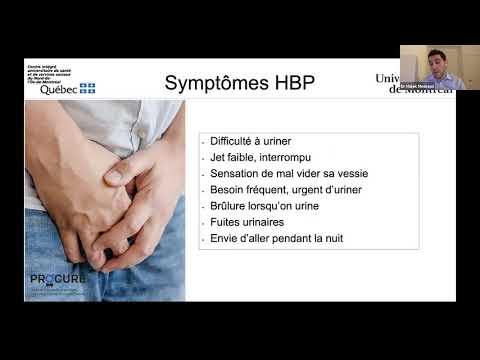Signes et symptômes
Signes et symptômes
Un cancer « silencieux »
Le plus souvent, le cancer de la prostate ne s’accompagne d’aucun symptôme; on le dit « silencieux ». Il sera découvert par hasard, à la suite d’une prise de sang ou lors d’un examen de routine de la prostate. De là l’importance du dépistage chez les hommes d’âge mur.
Dans certains cas, des symptômes urinaires pourraient apparaître lorsque la tumeur augmente et exerce une pression sur l’urètre ou lorsqu’il est avancé. D’autres affections médicales peuvent causer les mêmes symptômes tels la prostatite ou l’hypertrophie bénigne de la prostate (HBP).
Obtenez de plus amples informations sur les signaux d’alerte potentiels dans cette page. Si vous avez des questions ou des préoccupations, n’hésitez pas à nous contacter au 1 855 899-2873 ou via le clavardage pour discuter avec l’un de nos professionnels de la santé spécialisés en uro-oncologie.
Symptômes similaires lorsque l’urètre est comprimé
Les symptômes commencent à apparaître lorsque la tumeur augmente et exerce une pression sur l’urètre ou lorsqu’il est avancé. Les symptômes sont les mêmes que pour l’hypertrophie bénigne de la prostate (HBP), car en vieillissant la prostate augmente en volume et comprime l’urètre. La prostatite peut également causer des symptômes similaires au cancer de la prostate. Par contre, comme mentionné plus tôt, la majorité des patients avec un cancer de la prostate n’auront aucun symptômes cliniques.
Passé l’âge de 40 ans, il est important que les hommes s’assurent de ne pas confondre HBP, prostatite et cancer de la prostate. L’HBP et la prostatite ne correspondent pas à un cancer de la prostate. Elles font partie des maladies les plus courantes liées à la prostate. L’examen par un médecin devient donc plus qu’important pour en avoir le cœur net.
Les tests que votre médecin doit faire avec les signes et symptômes
Si vous présentez des symptômes inhabituels, il est important de consulter un médecin pour déterminer les causes. Le médecin pourra alors vous proposer un test sanguin d’antigène prostatique spécifique (APS) et un toucher rectal.
Si votre médecin estime que d’autres tests sont nécessaires pour confirmer ou infirmer un trouble de la prostate, il vous orientera vers un urologue. Celui-ci pourrait reprendre certains des tests que vous avez déjà passés. Il est possible qu’on vous demande de refaire un test de l’APS dans un proche avenir pour vérifier si votre taux d’APS augmente avec le temps et/ou confirmer une augmentation qui pourrait être temporaire. En fonction des résultats, vous déciderez ensemble de la marche à suivre.

Les signes et symptômes les plus communs
Aux premiers stades de l’HBP, il n’y a pas de signes et symptômes. Ceux-ci apparaissent lorsque la prostate dont la taille a augmenté exerce de la pression sur l’urètre et la vessie. Cela peut réduire le diamètre de l’urètre (le comprimer) ou irriter la vessie, ce qui peut causer des changements des habitudes urinaires et de la difficulté à uriner. Chez certains patients, des symptômes peuvent apparaitre avec un élargissement minime de la prostate.
L’HBP peut engendrer les symptômes suivants:
- Un besoin d’uriner souvent le jour et la nuit (mictions fréquentes)
- Un urgent besoin d’uriner (mictions urgentes)
- De la difficulté à commencer ou à arrêter d’uriner
- Un jet d’urine faible ou lent
- Un jet d’urine qui s’interrompt
- Une sensation de mal vider sa vessie
- Une difficulté à contrôler sa vessie (fuite urinaires)
- Une douleur ou sensation de brûlure lorsqu’on urine
- Une éjaculation difficile ou douloureuse
- Une présence de sang dans l’urine ou dans le sperme (rare)
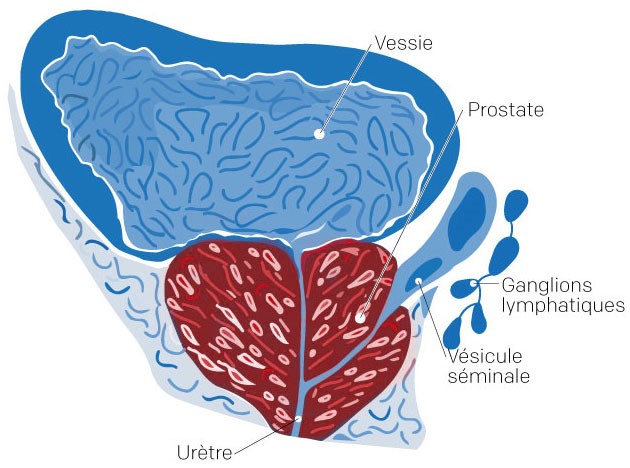
Les signes et symptômes les plus communs
La prostatite peut causer un grand éventail de symptômes très variables d’un homme à l’autre. Ils peuvent être similaires à ceux provoqués par l’hypertrophie bénigne de la prostate (HBP) et le cancer de la prostate. Par contre, elle se distingue par la présence de douleurs dans la région pelvienne et si aiguë, par une forte fièvre et des frissons.
La prostatite peut être causée par une infection urinaire aiguë (prostatite bactérienne) ou par une inflammation chronique/sensibilité chronique.
La prostatite peut engendrer les symptômes suivants:
- Un besoin d’uriner souvent le jour et la nuit (mictions fréquentes)
- Un urgent besoin d’uriner (mictions urgentes)
- Une difficulté à commencer ou à arrêter d’uriner
- Un jet d’urine faible ou lent
- Un jet d’urine qui s’interrompt
- Une sensation de mal vider sa vessie
- Une douleur ou sensation de brûlure lorsqu’on urine
- Des douleurs dans la région du bassin (organes génitaux, aine, bas du ventre ou bas du dos)
- Une éjaculation difficile ou douloureuse
- De la fièvre et des frissons si la prostatite est aiguë
- Des infections urinaires récurrentes
- Une présence de sang dans l’urine ou dans le sperme (rare)
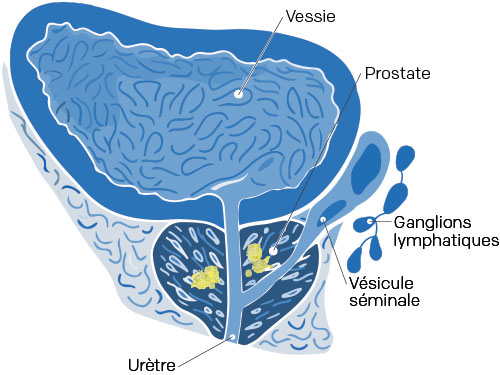
Les signes et symptômes d’un cancer localisé
Il est fréquent que le cancer de la prostate, lors des tout premiers stades, ne cause aucun symptôme dû à son développement généralement lent. Les symptômes peuvent apparaître si la tumeur grossit et comprime votre urètre – entraînant des changements de vos habitudes urinaires ou d’autres problèmes – ou si votre cancer est avancé. La tumeur ne cause pas généralement de douleur à la prostate proprement dite.
Mais d’abord et avant tout, pas de panique! Comme le cancer de la prostate commence généralement à se développer dans la partie de la prostate qui est la plus près du rectum (la région périphérique de la prostate), il n’appuie pas souvent sur l’urètre, provoquant ainsi des symptômes, à un stade précoce.
Comme mentionné plus haut, il ne faut pas perdre de vue que tous ces symptômes sont généralement causés par un grossissement bénin de la prostate qui survient avec l’âge et non par un cancer de la prostate. Ils peuvent également être causés par d’autres problèmes liés à l’appareil urinaire, dont la prostatite bactérienne ou infectieuse, entre autres.
Le cancer peut entraîner les symptômes suivants (le plus souvent, il n’y a aucun symptôme):
- Un besoin d’uriner souvent le jour et la nuit (mictions fréquentes)
- Un urgent besoin d’uriner (mictions urgentes)
- De la difficulté à commencer ou à arrêter d’uriner
- Un jet d’urine faible ou lent
- Un jet d’urine qui s’interrompt
- Une sensation de mal vider sa vessie
- Une difficulté à contrôler sa vessie (fuite urinaires)
- Une douleur ou sensation de brûlure lorsqu’on urine
- Une éjaculation difficile ou douloureuse
- Une présence de sang dans l’urine ou dans le sperme (rare)

Les signes et symptômes lorsqu’il se propage à l’extérieur de la prostate
Le cancer qui a pris naissance dans la prostate gagne ensuite les ganglions pelviens (ce ne sont pas les mêmes ganglions que ceux de l’aine, qui sont perceptibles: les ganglions pelviens se trouvent en profondeur dans le ventre, près de la prostate; on ne les voit pas et on ne les sent pas). C’est ce qu’on appelle des métastases ganglionnaires. Ces métastases ganglionnaires ne causent pas de douleur, mais peuvent, à l’occasion, causer un œdème (enflure) des pieds et des chevilles.
Au stade encore plus avancé de la maladie, les cellules cancéreuses ont généralement migré vers les os, en particulier ceux du bassin et de la colonne vertébrale (ce sont les métastases osseuses).
Si les métastases sont assez grosses, les symptômes suivants peuvent alors apparaître:
- De la douleur au bas du dos ou dans les hanches
- Un engourdissement ou paralysie des membres inférieurs (au niveau de la colonne vertébrale, les métastases peuvent comprimer la moelle épinière)
- Un œdème (enflure) des pieds et des chevilles (les métastases ganglionnaires peuvent causer un mauvais drainage lymphatique des membres inférieurs)
- Une perte de poids et atteinte de l’état général (on ne se sent pas bien)
- Une fatigue constante et pâleur (les métastases osseuses peuvent causer une anémie)
Si les tests initiaux, tels que le test de l’APS ou le toucher rectal indiquent un potentiel cancer de la prostate, votre urologue pourrait recommander une biopsie de la prostate. Cette biopsie permet d’évaluer la vitesse de progression du cancer et d’identifier les meilleures options de traitement.
Informations complémentaires – Signes et symptômes
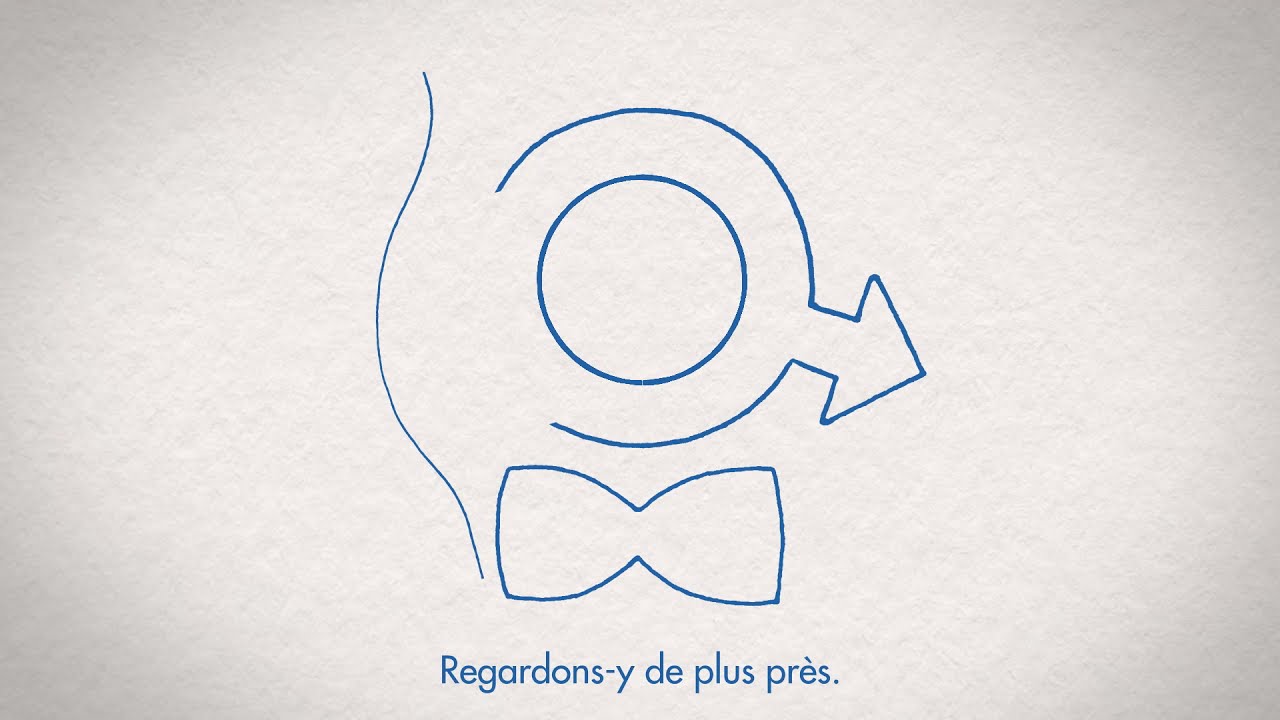
Symptômes, risque et dépistage
Vous avez plus de 50 ans ou des problèmes urinaires? Découvrez pourquoi le dépistage précoce des maladies de la prostate est important.
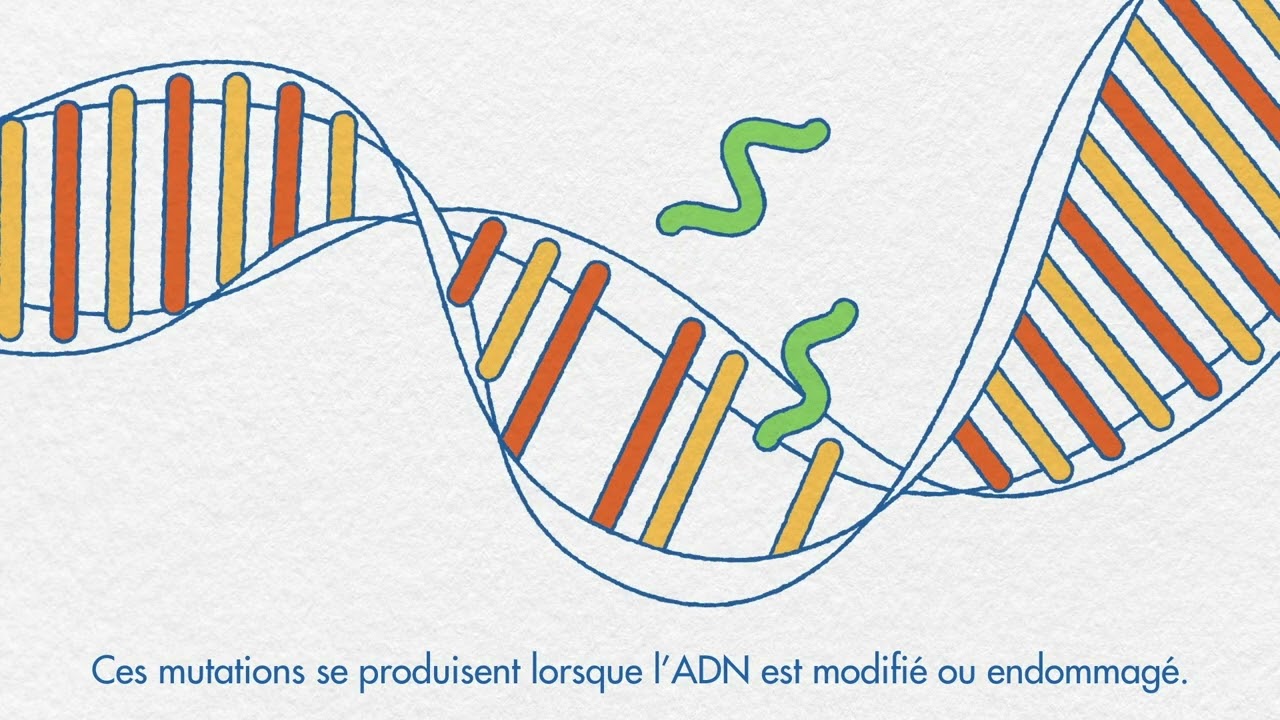
Génétique et cancer de la prostate
Avez-vous une histoire familiale de cancer? Votre médecin pourrait recommander un dépistage génétique.

Tout savoir sur l’incontinence urinaire masculine
Souffrez-vous d’incontinence urinaire masculine? Vous n’êtes pas seul. Ce webinaire aborde symptômes et traitements pour vous aider.
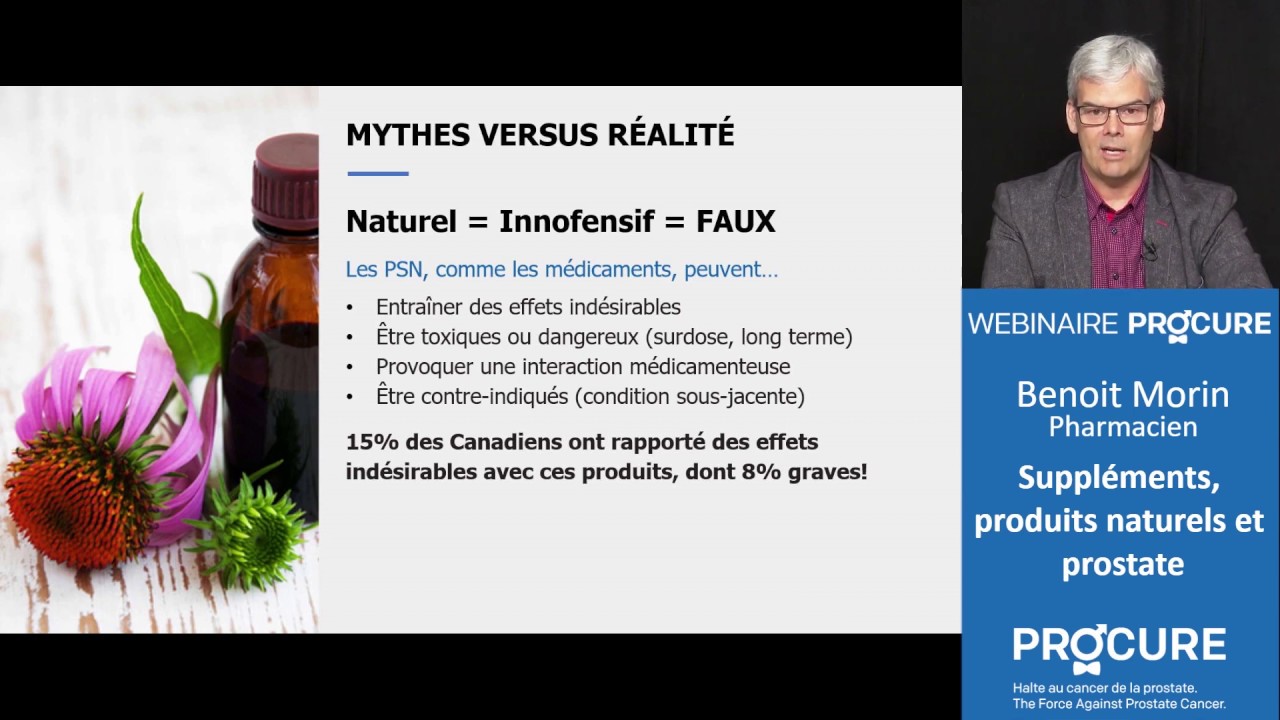
Prostate et produits naturels de santé
Pour ou contre les produits de santé naturels et plantes médicinales utilisés par les hommes?

Incontinence masculine: 8 mythes à débouter
L’incontinence masculine est un sujet tabou qui fait l’objet de plusieurs mythes. Pourtant, avoir la bonne information est essentielle.

Incontinence: Quels produits choisir?
Bien qu’on entende moins parler d’incontinence urinaire chez les hommes, certains d’entre eux sont confrontés à cette problématique.

HBP: Mythes et réalité
L’HBP, ou prostate volumineuse, est un phénomène naturel en vieillissant. Si vous en souffrez, il faut séparer les faits des mythes.

Vive ma vieille prostate!
Vive ma vieille prostate que je respecte! Présente uniquement chez les hommes, une fois adulte, elle peut être autant amie que coquine.
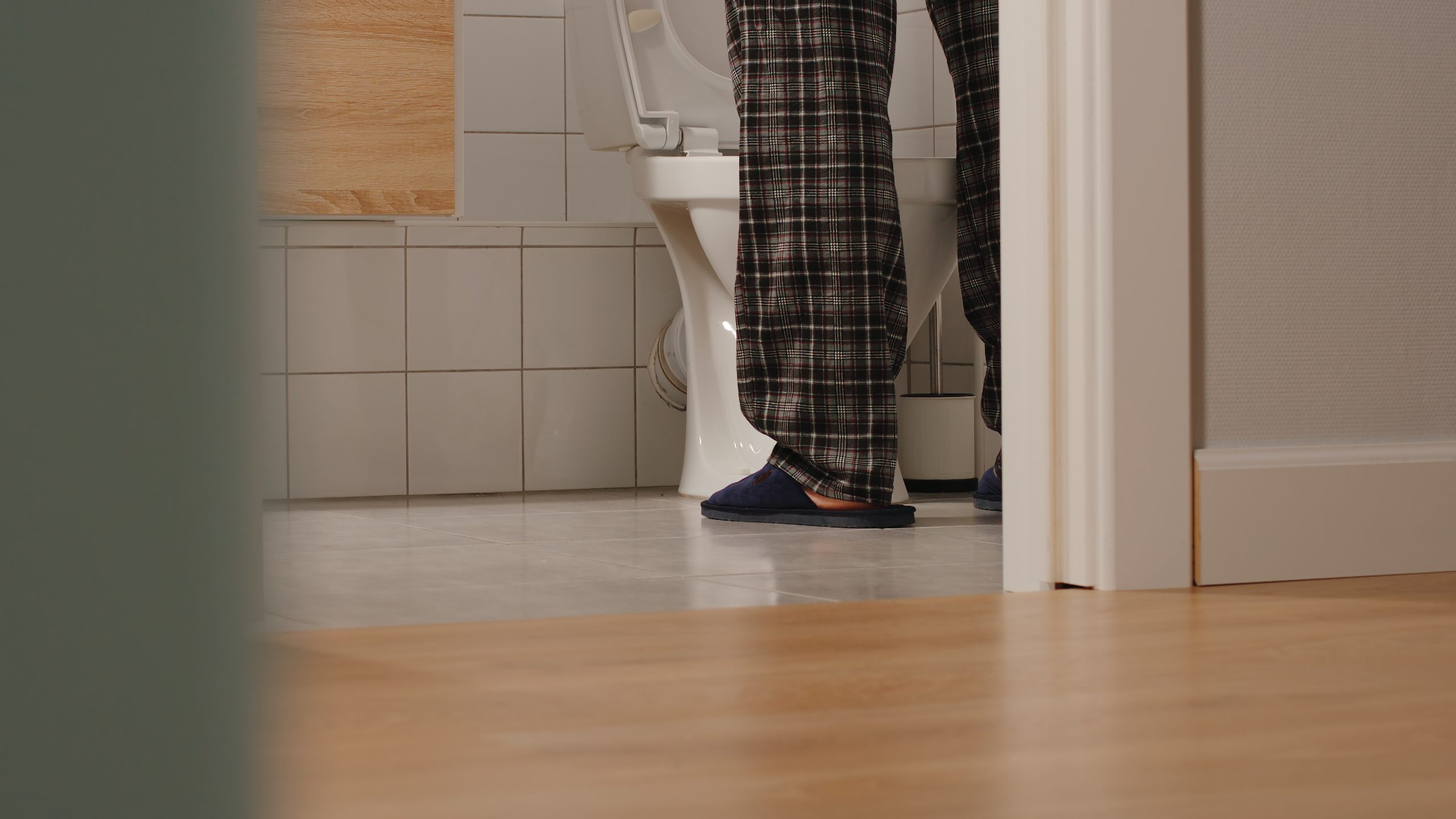
Pourquoi j’urine mon sperme
À la question à savoir pourquoi vous urinez votre sperme, la réponse est parce que vous avez ce que l’on nomme une éjaculation rétrograde.

Aliments irritants pour votre vessie
Vous avez des symptômes urinaires qui vous affectent au quotidien? L’article Aliments irritants pour votre vessie est pour vous. Nous savons que la prescription de certains médicaments peuvent favoriser une incontinence urinaire chez certaines personnes. Les effets secondaires de ces médicaments sont en parfois temporaires, mais il important d’en parler à votre médecin. Révision médicale […]

10 signes qui incitent à consulter un médecin
Il existe de nombreuses raisons pour lesquelles les hommes seront référés vers un spécialiste, et si vous ressentez l’un des symptômes suivants, vous devriez consulter un médecin de famille. Voici 10 signes qui incitent à consulter. Sachez également qu’à moins d’aller en clinique privée, vous ne pouvez pas consulter un spécialiste directement, comme un urologue, […]

Je pense que c’est une infection urinaire
Vous avez des symptômes urinaires accompagnés de douleurs ou de brûlures lorsque vous urinez? C’est peut-être une infection urinaire. L’infection urinaire est beaucoup plus rare chez l’homme que chez la femme. Elle a deux causes majeures: une maladie sexuellement transmissible ou des complications liées à votre prostate. L’infection peut survenir lorsqu’une bactérie néfaste se loge […]

Ma vessie est pleine et je n’urine plus!
Une impossibilité soudaine et douloureuse à vider volontairement sa vessie évoque une rétention urinaire aiguë. Ma vessie est pleine et je n’urine plus veut dire consulter de toute urgence. Elle est plus fréquente chez les hommes que les femmes, et est due le plus souvent à une prostate volumineuse ou HBP. Cette dernière peut venir […]
Sources et références
Dernière révision médicale et éditoriale: janvier 2024. Voir notre comité de valiation de nos pages Web et nos collaborateurs en cliquant ici.



